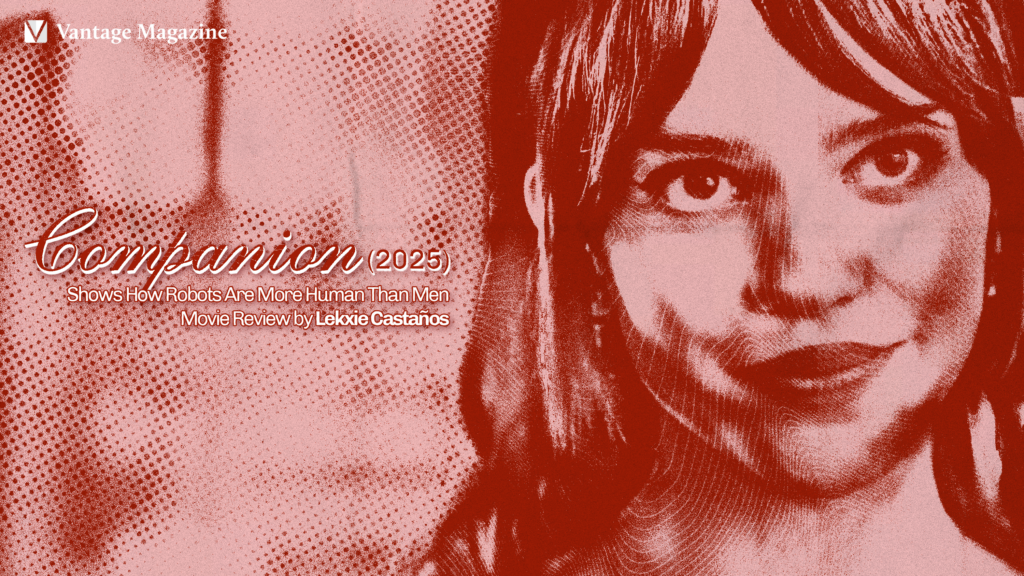One of the many curiosities of death is wondering what those left behind will say about the deceased. One hopes that they are all good things, but there is no way to tell.
Deadma Walking, directed by Julius Alfonso and produced under T-Rex Productions, is a film that delves into how far some people are willing to go for the sake of friendship and being remembered. It is based on a Palanca award-winning screenplay.
John Samson (Joross Gamboa) is a businessman who has been diagnosed with terminal Stage 4 cancer. He involves his best friend and theater actor Mark Caramat (portrayed by Metro Manila Film Festival 2017 Best Supporting Actor Edgar Allan Guzman) in a plot to fake the former’s death so that he might hear what people say about him before he passes away.
Illuminated by the love of both men for theatrics and exaggeration, there is much parallelism in the details of their own individual arcs. They first met at a wake service at their parish where John was lector and Mark, the one-man choir. It turns out that the greatest act of their friendship will be staging John’s fake wake and funeral.
John, son of a former beauty queen, comes from a well-off family, while Mark is a probinsyano who had to serve as the breadwinner of his family for much of his life. This difference in background is seen when Mark and John plan the latter’s wake services. Mark points out that the typical gambling and alcohol during wakes wouldn’t be John’s style, swapping vices for the class and elegance of art films and catering.
Supported by Mark’s profession as a theater actor, most of the soundtrack comprised of songs from the musical he stars in called “Crying Divas.” This musical encapsulates the film’s main premise: Creating a scene through faux tears and emotions that it almost seems real. The repeated performances of “Crying Divas” also show the evolution of Mark and John’s friendship as the movie progresses.
Gamboa and Guzman put on enjoyable performances throughout the film, their chemistry just about perfect for the role of best friends. Their interactions are never awkward but rather genuine and comfortable. Both drive the film with steady reins, Gamboa giving his character the perfect amount of humor and sentiment, while Guzman playing both comedic partner-in-crime and emotional “Crying Diva” Mark.
As far as cinematography goes, the movie puts much emphasis on Mark and John as a duo. Several scenes can be seen as mirrors to each other, a comparison of the wholeness when they are together and incompleteness when one is absent.
Because of this emphasis, taking either Mark or John away from the other causes a longing for them to be whole once again. Mark’s line in his eulogy (“Puwede rin palang soulmates ang dalawang mag-kaibigan [It’s possible for two friends to be soulmates].”) and John’s referral to them as each other’s “yin and yang” highlight the importance of their friendship and being one as the driving force for the whole film.
It is commendable that the film features gay characters, but does not focus on their sexual orientation. Mark and John are characters who have to face their own problems and just so happen to be gay. This is a stark difference from the typical tropes portrayed in local cinema, where gay characters are created simply to be gay. The humor of the film does not stem from their sexual orientation, nor is it the object of laughter; rather their sexual orientation is merely reflected upon their personalities and mannerisms.
With so many themes to juggle such as friendship, family, desire, and death, the film struggles to create a smooth and seamless transition between comedy and sentiment. The earlier parts were so saturated with comedy that the more emotional parts in the middle and towards the end felt almost rushed. However, the build-up of emotions can be attributed to the weight of the twist at the end, so unexpected, so different from the way the film is marketed that it feels a little heavy on the heart.
In spite of its slightly staggered flow, Deadma Walking is a film that delivers a lot of laughs and some tears for those who have friends who feel more like soulmates. It gives the audience a look into how the sudden nature of death leaves much more to be desired, with unmended ties that constantly look for one more chance to properly say goodbye.
Featured photo retrieved from entertainment.inquirer.net






